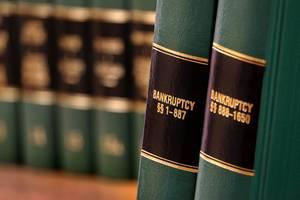 312-704-0771
312-704-0771
How Can Creditors Defend Against Clawbacks of Preferential Payments?
 For creditors, recovering money owed by debtors is a primary concern. There are a variety of issues that can affect a creditor’s ability to receive what is owed, especially in cases where debtors file for bankruptcy. Preferential payments to creditors are one issue that may arise in these cases. If a creditor has received payments from a debtor before the debtor filed for bankruptcy, the creditor may be required to turn over some or all of these payments. In these situations, creditors will need to understand their options for defending against “clawback” actions.
For creditors, recovering money owed by debtors is a primary concern. There are a variety of issues that can affect a creditor’s ability to receive what is owed, especially in cases where debtors file for bankruptcy. Preferential payments to creditors are one issue that may arise in these cases. If a creditor has received payments from a debtor before the debtor filed for bankruptcy, the creditor may be required to turn over some or all of these payments. In these situations, creditors will need to understand their options for defending against “clawback” actions.
Understanding Preferential Payments
When filing for bankruptcy, debtors are not allowed to provide preferential treatment to one or more creditors. A payment made to a creditor may be considered a preferential payment if it was made within 90 days before the debtor filed for bankruptcy and while the debtor was insolvent. These payments must be made toward “antecedent” debts that had existed previously, and they must have allowed a creditor to receive a higher payment than what would have been made to them in a Chapter 7 bankruptcy. Since preferential payments are illegal, a bankruptcy trustee may seek to recover some or all of the amount that was paid, or other creditors may pursue clawback actions to ensure that all creditors will be treated fairly during the bankruptcy process.
Potential Defenses Against Clawback Actions
The U.S. Bankruptcy Code details a number of exceptions to the rules regarding preferential payments, and a creditor may be able to defend against the recovery of these payments by demonstrating that the payments they received were legitimate. Some of the most common defenses against clawbacks include:
-
Ordinary course of business - A creditor may show that payments received from a debtor were made as part of regular business arrangements between the parties. If the amount, timing, and methods of payment were the same as previous business dealings between a debtor and creditor, they generally will not be considered preferential payments.
-
Subsequent new value - If a creditor provides a debtor with new goods or services after receiving a payment, the new value provided to the debtor may be subtracted from the amount of the preferential payment that was made to the creditor.
-
Contemporaneous exchange for new value - Since payments are only considered preferential if they are meant to address an antecedent debt, a creditor may be able to show that the payments they received were not used to pay debts owed by the debtor. That is, if the creditor provides goods or services to the debtor at the time or immediately after they receive payments, the payments may not be considered preferential payments toward other debts that the debtor owes to the creditor.
Contact Our Cook County Clawback Action Defense Attorneys
If you are a creditor who has received payments from a debtor, and you are concerned that you may be required to turn over what you have been paid after the debtor files for bankruptcy, Dimand Walinski Law Offices, P.C. can advise you of your rights and options. We will help you determine whether you may be able to defend against clawback actions or take other actions to protect your financial interests. For legal help with these issues, contact our Chicago creditors’ rights lawyers at 312-704-0771.
Sources:
https://www.law.cornell.edu/uscode/text/11/547
https://blogs.orrick.com/distressed-download/2015/02/13/decoding-the-code-preferences-under-section-547-of-the-bankruptcy-code/
https://www.eisneramper.com/section-547-preferences-defences-0115/






